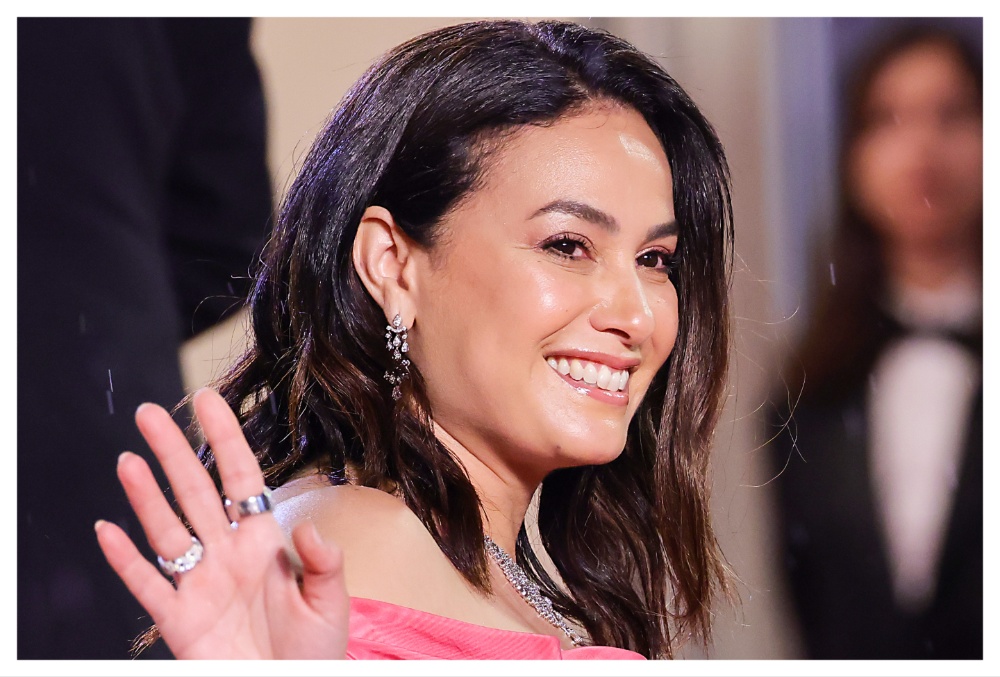Hend Sabri: Redefining female roles in Middle Eastern television
A new era for Middle Eastern TV
The Middle Eastern entertainment landscape is witnessing a significant shift, thanks to the remarkable contributions of Tunisian-Egyptian star Hend Sabri. Known for her compelling portrayals of complex female characters, Sabri is at the forefront of this cultural transformation.
The Arabic adaptation of ‘The Good Wife’
Sabri stars in “Moftaraq Toroq,” the Arabic adaptation of the acclaimed series “The Good Wife.” Premiering in June, the show has quickly garnered top ratings across the Middle East on the leading regional network MBC’s Shahid premium streamer. In this series, Sabri plays Amira, a woman who, after dedicating 15 years to her family and her politician husband, returns to her legal career following her husband’s scandal.
For those interested in exploring this adaptation, you can watch the trailer for Moftaraq Toroq.
Navigating cultural complexities
Sabri, who also serves as a producer on the show, has been instrumental in adapting the character of Alicia Florrick to fit an Arabic cultural context. This adaptation required careful consideration of social norms and values. Sabri explains that the key to success in this region is not to shock the audience but to take them on a journey from familiar territory to new perspectives.
Balancing act
Sabri emphasizes the importance of balancing the character’s journey with cultural sensitivities. “The shock doctrine doesn’t work in this region,” she notes. Instead, the goal is to guide the audience from what they know to new ways of thinking. This approach is evident in how Amira’s relationships and social interactions are portrayed, ensuring they resonate with Middle Eastern viewers.
Transforming Alicia into Amira
Adapting Alicia Florrick’s character for an Arabic audience involved several changes. Sabri and the production team had to navigate tricky moments, particularly around social judgment and the character’s romantic entanglements. In the Arabic version, Amira’s interactions with her boss and her husband are carefully crafted to reflect the region’s social constructs.
Cultural nuances
In the original American version, Alicia is a strong character who chooses to put herself second. However, in the Arabic adaptation, Amira’s choices are more constrained by societal expectations. This subtle difference highlights the unique challenges faced by women in the Middle East and adds depth to Amira’s character.
‘Finding Ola’: A journey of self-discovery
In addition to “Moftaraq Toroq,” Sabri stars in Netflix’s hit Arabic original “Finding Ola.” In this series, she plays a Cairo divorcee embarking on a journey of self-discovery. The second season of “Finding Ola” is expected to be released later this year. You can watch the trailer for Finding Ola.
A nuanced portrayal
“Finding Ola” offers a refreshing portrayal of a middle-aged woman navigating life after divorce. This character is groundbreaking in a region where middle-aged women are often overlooked in media. Sabri’s portrayal of Ola is both authentic and inspiring, resonating with many viewers who see themselves in her journey.
The impact of nuanced characters
Sabri believes that having nuanced characters like Amira and Ola is crucial for the Middle East. These characters reflect the complexities of real life and challenge societal norms. By portraying women who are torn between personal desires and societal expectations, Sabri is pushing boundaries and encouraging viewers to think differently.
A dance with the audience
Creating these characters is a delicate dance with the audience. Sabri’s experience and intuition guide her in knowing when to push boundaries and when to pull back. She emphasizes the importance of portraying her characters as victims of societal constraints rather than simply women who change their minds easily. This approach ensures that the characters are relatable and their actions are understood within the cultural context.
Looking ahead
As Sabri continues to break new ground in Middle Eastern television, her work serves as a beacon of change. By bringing complex, relatable female characters to the screen, she is not only entertaining audiences but also challenging and reshaping cultural narratives.
For more insights into Sabri’s work and to stay updated on her latest projects, keep an eye on streaming platforms and regional networks. Her contributions are paving the way for a more inclusive and diverse representation of women in Middle Eastern media.

 Italian
Italian







